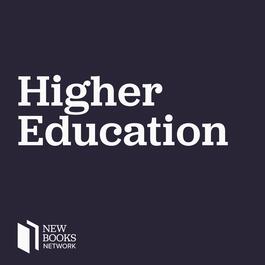
Kecia Ali, "The Woman Question in Islamic Studies" (Princeton UP, 2024)
In The Woman Question in Islamic Studies (Princeton UP, 2024), the Introduction of which is available at the publisher's website, Kecia Ali delves into the deeply entrenched ways sexism continues to shape the academic landscape of Islamic Studies. Despite the growing presence of women scholars in the field, Ali finds that women’s work remains marginalized, relegated to the periphery while male-authored research is treated as more authoritative. Ali tackles this issue with a mix of sharp analysis and humor, showing how gender biases persist at every level of scholarship—from course syllabi to citations to job hiring practices to editorial decisions. Through a combination of broad surveys and focused analyses, she uncovers the patterns of exclusion that, to quote her, “beget exclusion.” The issue isn’t simply of women not being cited or mentioned in indices and footnotes and bibliographies, but also of how women’s scholarship is talked about compared to how men’s scholarship is described, hyped, and promoted. Even male scholars who present themselves as gender-inclusive often overlook or fail to cite women’s scholarship, which further highlights the deep-seated nature of this problem and of the pattern that Ali is exploring. The book doesn't just highlight the problem but also provides actionable strategies for transforming the field. Ali offers a practical "Beginner’s Guide to Eradicating Sexism in Islamic Studies," addressing areas like peer reviewing, citation practices, curriculum design, invitation for lectures and talks. This guide provides scholars with tools to counteract the biases that limit women’s visibility and contribution. With a keen eye on the wider academic context, Ali situates these issues not only within Islamic Studies but as part of broader patterns of gender inequality in disciplines across the academy – such as in Economics, in Political Science, in Philosophy, in the natural sciences, in Jewish Studies, in Religious Studies broadly. The Woman Question in Islamic Studies is both a compelling critique and a roadmap for change, urging scholars to recognize the ethical and intellectual importance of equitable citation and inclusion. In our conversation today, Ali identifies some of the main points of the book, explains how the book came about and what her methodology is; we also discuss why women aren’t being cited and why their exclusion from scholarship matters, why women are more likely than men to be more equitable in their citation practices, and how the book has been received so far and how Ali hopes people will respond. Ali and Lolo Serrano have co-author an article examining gender bias across fifteen years of book reviews in the Journal of the American Academy of Religion (2006–2020), which has been published in the same journal (accessible here). The article concludes that reviewers of all gender consistently prioritize and celebrate men’s scholarship at a disproportionate rate, and male reviewers are found to cite the works of male scholars at a significantly higher rate. This book will appeal to scholars, researchers, students, and others professionals in Islamic Studies, Religious Studies, Gender Studies, and related fields, as well as anyone interested in academic equity and the dynamics of citation practices. It is an essential read for those looking to understand the persistent gender disparities in academia and for educators, researchers, and policymakers seeking practical strategies for fostering a more inclusive and equitable scholarly environment. Moreover, anyone invested in challenging systemic sexism across disciplines, from the humanities to the social sciences, will find Ali’s insights both compelling and transformative. And especially those who don’t believe gender is relevant to their research, or who don’t think there are enough women they can cite in their works, will find the book immensely useful. Learn more about your ad choices. Visit megaphone.fm/adchoices
From "New Books in Higher Education"


Comments
Add comment Feedback